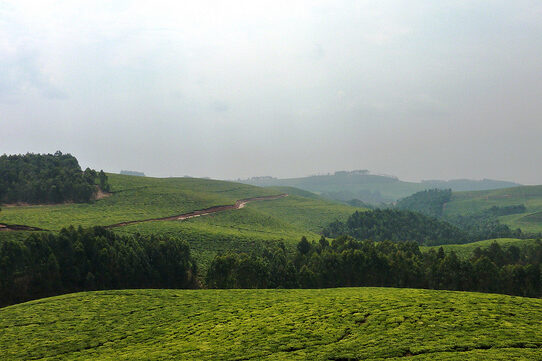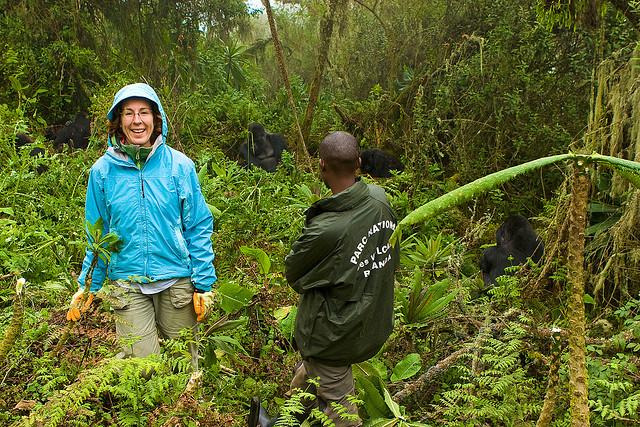
Behind the material movement that takes tea from the slopes of Rwanda’s ‘thousand hills’ to a box on a shelf in Tesco, is a growing set of less visible digital data flows. Image by pasunejen.
Production of export commodity goods like tea, coffee and chocolate is an important contributor to economies in Africa. Producers sell their goods into international markets, with the final products being sold in supermarkets, here in the UK and throughout the world. So what role is new Internet connectivity playing in changing these sectors—which are often seen as slow to adopt new technologies? As part of our work examining the impacts of growing Internet connectivity and new digital ICTs in East Africa we explored uses of the Internet and ICTs in the tea sector in Rwanda. Tea is a sector with well-established practices and relations in the region, so we were curious if ICT might be changing it. Of course, one cannot ignore the movements of material goods when you research the tea sector. Tea is Rwanda’s main export by value, and in 2012 it moved over 21,000 tonnes of tea, accruing around $56m in value. During our fieldwork we interviewed cooperatives in remote offices surrounded by tea plantations in the temperate Southern highlands, tea processors in noisy tea factories heavy with the overpowering smell of fermenting tea leaves, and tea buyers and sellers surrounded by corridors piled high with sacks of tea. But behind the material movement that takes tea from the slopes of Rwanda’s ‘thousand hills’ to a box on a shelf in Tesco, is a growing set of less visible digital data flows. Whilst the adoption of digital technologies is not comprehensive in the Rwandan tea sector (with, for example, very low Internet use among tea growers), we did find growing use of the Internet and ICTs. More importantly, where they were present, digital flows of information (such as tea-batch tracking, logistics and sales prices) were increasingly important to the ability of firms to improve production and ultimately to increase their profit share from tea. We have termed this a ‘data-driven value chain’ to highlight that these new…

